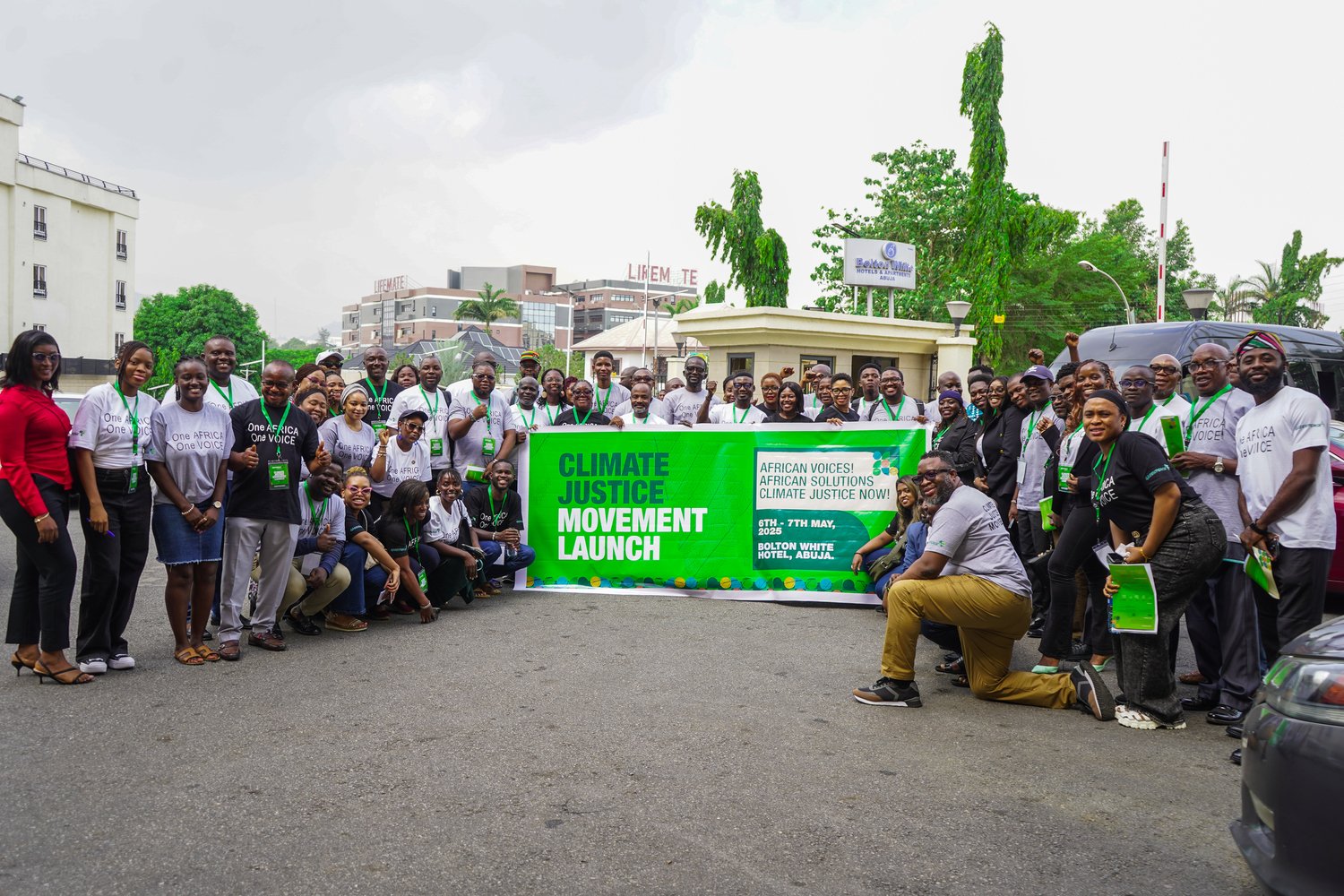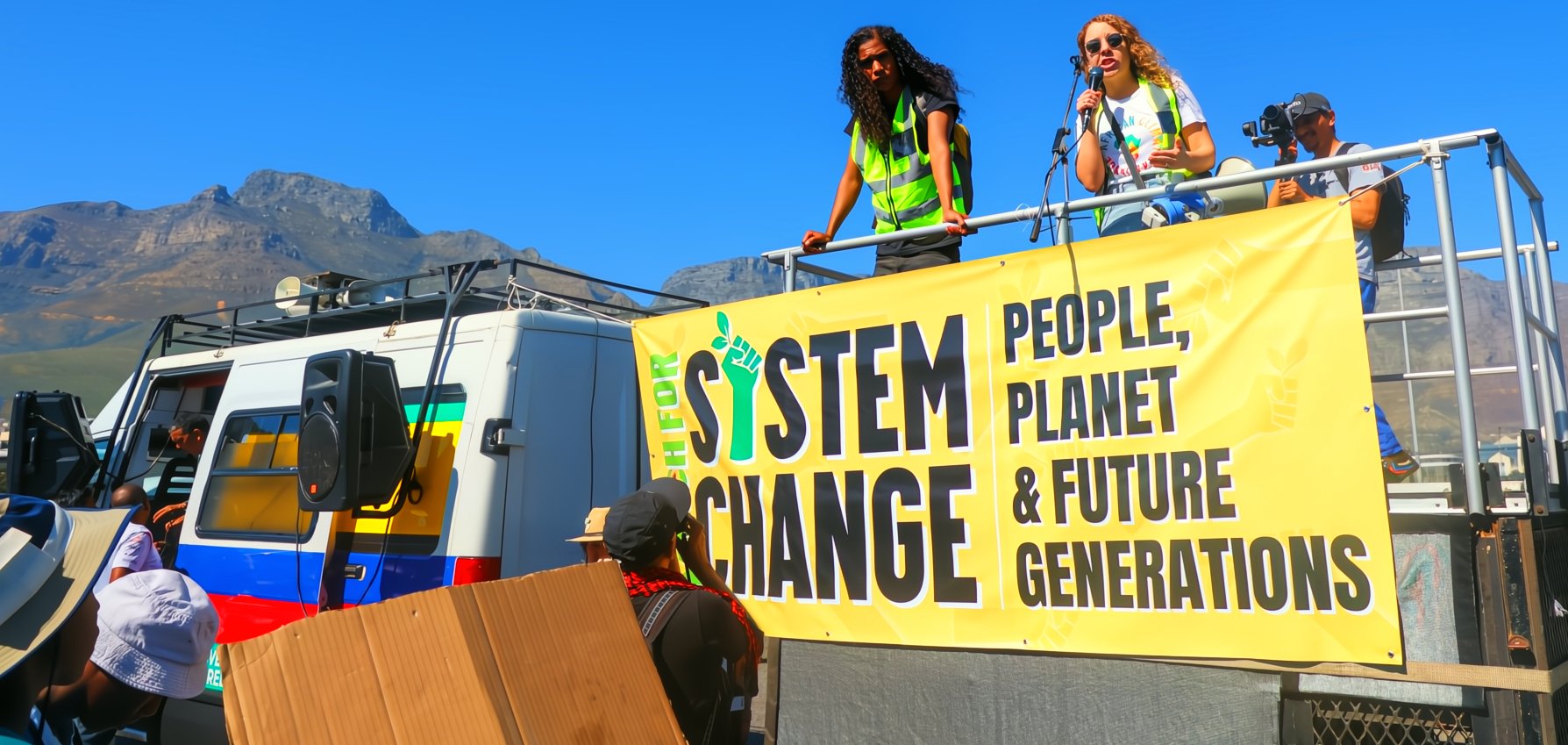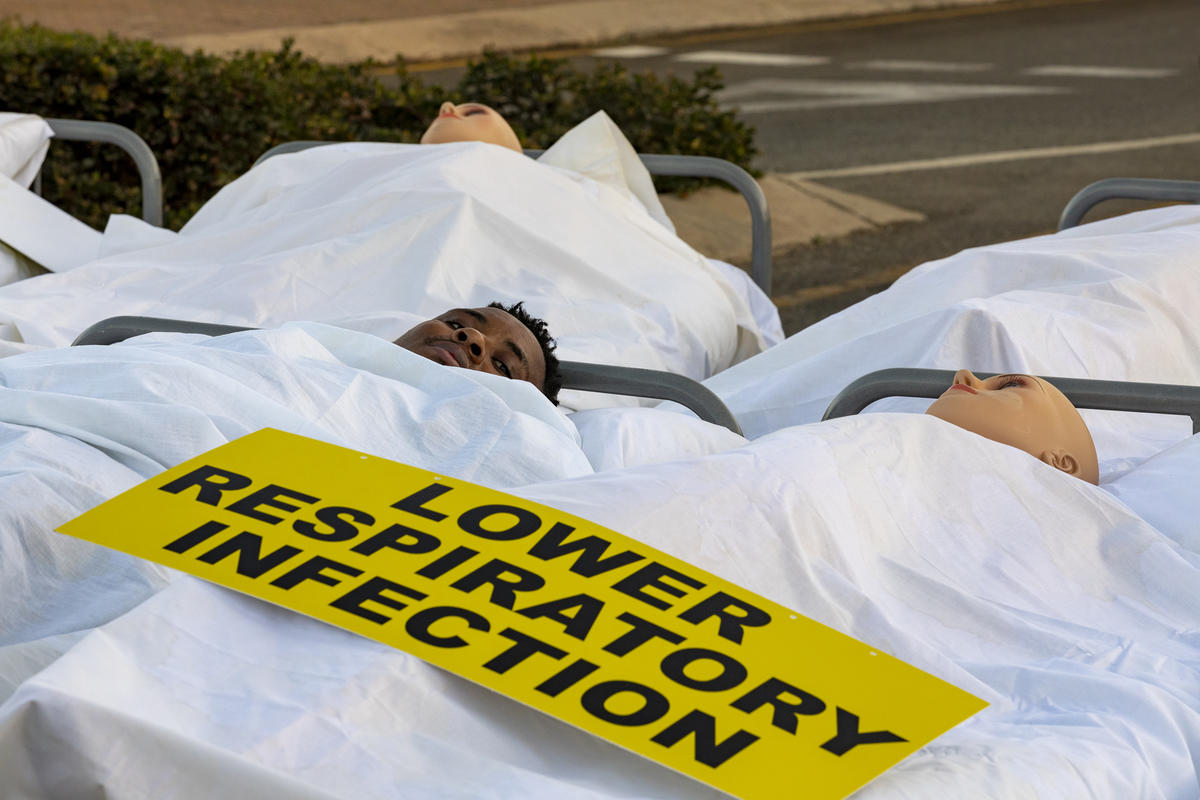Johannesburg, South Africa, 21 February 2018 – This morning activists from Greenpeace Southeast Asia – Philippines unfurled a banner reading “PEOPLE AND PLANET, NOT PROFIT” from Shell’s Batangas oil refinery, sending a sharp reminder to Shell to attend upcoming hearings into the responsibility of big fossil fuel companies for climate-related human rights harms.
The activists also delivered a letter demanding Shell own up to their responsibility for contributions to the climate crisis and show up at the first hearing taking place in March. The hearings are part of a world-first investigation led by the Commission on Human Rights of the Philippines into how climate-related human rights harms are fuelled by their business of extracting and marketing fossil fuels. South African based energy giant Sasol is among the 47 companies being investigated by the Commission on Human Rights of the Philippines.
“Sasol’s coal-to-liquids plant in Secunda is the world’s biggest single-point source of emissions, and the company is the second largest emitter in the country, with only Eskom producing more emissions. Greenpeace Africa demands that Sasol participates in the investigation in the Philippines and explain how they will change their business operations that continue to fuel climate change. Fossil fuel companies can no longer continue to line their own pockets at the expense of social and environmental justice. They can and will be held accountable.” said Melita Steele, Senior Climate and Energy Campaign Manager for Greenpeace Africa.
Sasol, Shell, BHP Billiton, BP, Chevron, ConocoPhillips, ENI, ExxonMobil, Glencore, OMV, Repsol, Suncor, Total and RWE, are among the 47 companies being investigated by the Commission on Human Rights of the Philippines in the world’s first national inquiry into the responsibility of the Carbon Majors for Human Rights Violations or Threats of Violations Resulting from the Impacts of Climate Change.
[1] The first of up to five public hearings will take place on 27-28 March in Manila,
[2] followed by two more hearings in the Philippines as well as one in the US and one in Europe during the second half of the year.
The investigation was triggered by a petition filed at the Commission in 2015 by representatives of communities across the Philippines, one of the countries most at risk from the impacts of climate change. The group includes fisherfolk from Alabat, communities living in the shadow of the Bataan coal power plant, survivors of super-typhoons such as Haiyan (Yolanda), and civil society groups, including Greenpeace Southeast Asia-Philippines.
The Commission will conclude its investigation by the end of this year and issue its recommendations in early 2019, which will have the potential to shift global understanding of corporate responsibility for climate change.
“Companies like Sasol are well aware of the harm that their fossil fuel investments cause, but do nothing to change. The rights of current and future generations and of communities around the world made vulnerable by climate change must be at the centre of our concern, and people are increasingly standing up for their rights using the law” added Steele.
The investigation in the Philippines is part of the growing global movement of people demanding that their rights to a stable climate and healthy environment are protected. The movement is strong and diverse, ranging from groups of senior women in Switzerland; youth groups in the US, Norway, Portugal and Colombia; impacted fishing, farming and coastal communities in the Philippines; a citizens group in the Netherlands; to individuals from Peru, New Zealand and Pakistan. In each of these cases, people are pushing back using the power of the law because governments and fossil fuel companies are failing to protect and respect human rights. Civil society groups in South Africa continue to consider all avenues, including legal avenues, to hold polluters to account. Fossil fuel companies, in particular, are facing an increasing number of climate litigation cases around the world
[4].
Media Contacts:
Lerato Ngakane, Greenpeace Africa Climate and Energy Communications Officer, 082 614 2676, [email protected]
JP Agcaoili, Media and Communications Manager, Greenpeace Southeast Asia – Philippines [email protected] | +63 949 889 1334
For photos and videos:
Grace Duran-Cabus, Photo Desk, Greenpeace Southeast Asia
[email protected] | +63 949 889 1335



